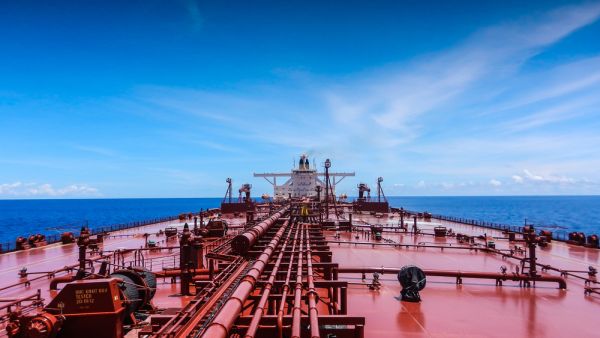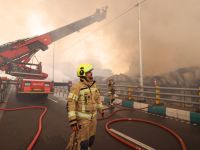A leading international rights group on Monday urged the UN Security Council to impose additional sanctions on the Iran-backed Houthi militias in Yemen unless they provide UN experts access to an oil tanker moored off the coast of Yemen and in danger of leaking.
The FSO Safer is loaded with 1.1 million barrels of crude. The Houthis, who control the area, have denied UN inspectors access to the vessel.
The UN warned earlier this month of an environmental, economic and humanitarian catastrophe from the ship, which hasn’t been maintained for over five years. Experts fear the tanker could explode or leak, causing massive environmental damage to Red Sea marine life.
Human Rights Watch said the impact of an oil spill on livelihoods, access to water and food, and on fuel prices could significantly exacerbate Yemen’s humanitarian crisis. An oil spill could also shut down the port of Hodeidah, a lifeline for millions of Yemenis who depend on commercial imports and humanitarian aid.
The tanker "threatens to destroy entire ecosystems and demolish the livelihoods of millions of people already suffering from Yemen’s war," said Gerry Simpson, associate crisis and conflict director at HRW.
Internal documents obtained by The Associated Press last month show that seawater has entered the engine compartment of the tanker, causing damage to pipes and increasing the risk of sinking. Rust has covered parts of the tanker and the inert gas that prevents the tanks from gathering inflammable gases, has leaked out. Experts say maintenance is no longer possible because the damage to the ship is irreversible, according to an AP report June 26.
The Houthis have signaled they would approve a UN mission to the ship, but so far, that hasn't happened.
The Japanese-built tanker has been moored off Ras Issa since the 1980s, when it was sold to the Yemeni government.
This article has been adapted from its original source.








